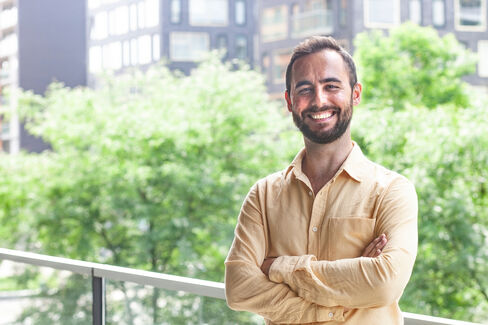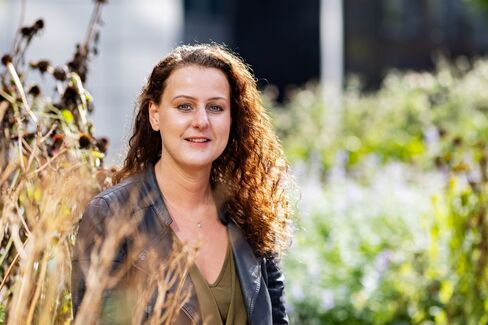20 April 2021
'Whenever I was asked at a party what I do for a living, I always said: catching crooks. I now know that this is a lot more nuanced. ABN AMRO does not want to facilitate criminal activities in any way. This is only achievable if you know your clients inside out and you are alert to deviations from the norm. This includes deviations in payment behaviour, financial cash flows, legal and fiscal constructions and business operations. That is my responsibility as a Financial Crime Analyst: getting to the bottom of any anomalies that are reported and tracking down dirty money. If there is sufficient evidence, we put the Financial Intelligence Unit (FIU) on that track and they can catch the crooks.'
Robin van Bemmelen studied Criminology and has been working within Detecting Financial Crime at ABN AMRO for over two years. 'During my studies, I was most drawn to the subject of Financial Economic Crime. Most of them are white-collar crimes, where the chance of being caught is very small, while the damage caused by money laundering is really unimaginable. Corrupt politicians, businessmen and criminals enrich themselves at the expense of a country, its economic development and the population. In the Netherlands, the FIOD estimates that €16 billion of criminal money is laundered each year. That's a great challenge to get my teeth into.'
From large to small
In practice, it's not just about the big fish. Irregularities can be found on all levels, and social changes also have a huge effect on my work. For example, I encounter a lot of suspicious transactions these days relating to Covid-19 support measures. We can see from the current account that the turnover has not decreased by nearly as much as claimed by the applicant. Or may we see that someone receives a subsidy and immediately withdraws that amount in cash or transfers it abroad.
Considering the millions of ABN AMRO clients, these types of irregularities are usually uncovered using advanced techniques such as artificial intelligence and machine learning. By using these innovative tools, we can keep a keen eye on the areas that require attention.
Hearing both sides
'Things that emerge from the system or are spotted by attentive colleagues are passed on to me. I use that to start my initial desk research. I examine the systems to see find out we know about the client and whether there is a logical explanation for the anomaly. If I have any questions, I contact the client. It's tense, but more importantly, very fascinating work. Driven by curiosity, I try to gain information about the ins and outs of the business. Using this information, you can put the observed anomaly into perspective and ask the entrepreneur about it. And, of course, a suspicion of wrongdoing only becomes a fact if you can prove it.'
Outlook
In the majority of cases I investigate, the entrepreneur acts in good faith. Sometimes, however, there are serious breaches of financial legislation. It is satisfying to be able to bring this to light and call in the FIU. For the time being, my ambition is to get better and better at this detective work. That is why I participate in lots of courses, training programmes and workshops through the Detecting Financial Crime Academy. I also have a personal training budget. This year, I think I will use my budget to prepare for the next step in my career. I would love to use my experience as a coach for new employees or perhaps as a line manager. ABN AMRO offers plenty of opportunities – it's up to me to seize them.'


